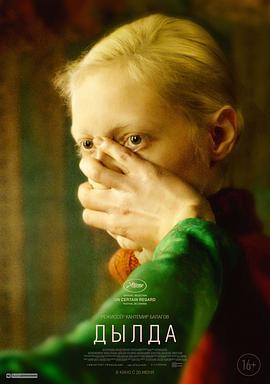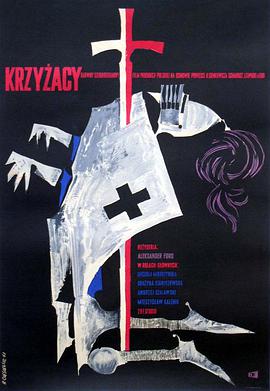- 三三云1
- 三三云2
- 高个儿
- 超清

高个儿
- 主演:
- 维多利亚·米罗什尼琴科,瓦西丽莎·佩里吉娜,Andrey,Bykov,Igor,Shirokov
- 备注:
- 正片
- 类型:
- 剧情片 剧情
- 导演:
- 康捷米尔·巴拉戈夫
- 年代:
- 2019
- 地区:
- 俄罗斯
- 更新:
- 2023-06-28 14:46
- 简介:
- 经历战争和长期围困幸存下来的城市,看起来像一个身患绝症的人。死亡和生命还没有在这里完成他们的战斗。人们看起来比城市更好一些,但实际上每个人都以自己的方式被毁坏。...详细
Beanpole (Dylda): Disturbing scenes of postwar Soviet life
《瘦人》:战后苏维埃满目疮痍的日子
By Clara Weiss
17 July 2019
The second film by 27-year-old Russian dirtor Kantemir Balagov, Beanpole (Dylda), gained praise at the recent Cannes Film Festival where it won the FIPRESCI (International Federation of Film Critics) prize.
作者:韦斯·克拉拉 2019年7月17号
近日,由27岁的俄罗斯导演坎特米尔·巴拉戈夫指导的第二部影片《瘦人》在戛纳电影节赢得一致好评,并获得了国际影评人联合会奖。
The film treats the damaged lives of two young women who have returned to Leningrad (today St. Petersburg) from the front in the immediate aftermath of the Second World War. The conflict claimed the lives of over 27 million Soviet citizens, including over 1 million in the siege of Leningrad alone.
电影讲述了二战后,两名年轻女子从前线回到列宁格勒(现圣彼得堡)后的悲惨生活,2700多万SL公民都在二战中丧生,仅列宁格勒保卫战就夺走了一百多万人的生命。
“Dylda” in Russian describes a tall and somewhat awkward person and refers to the film’s protagonist, the young nurse Iya (Viktoria Miroshnichenko), who works in a Leningrad hospital treating wounded Red Army soldiers. She is also looking after a young boy, who seems to be her son. The film opens with a scene in which Iya experiences something of a fit or seizure and loses consciousness and the ability to hear what is going on around her.
俄语“Dylda”在片中塑造的人物形象是一个身材高大,有些笨拙的年轻护士lya,也是这部影片的主角。Lya在列宁格勒的一家战地医院照护受伤的红兵战士,同时也在照顾一个似乎是她儿子的小男孩。电影的开场镜头是lya失去了意识,听不见周遭,不停地痉挛抽搐着。
Within the first 20 minutes of the film, Iya, in a highly disturbing scene, strangles a little boy, Pashka (Timofey Glazkov), during another fit, while the two are playing. Soon afterward, Iya’s friend Masha (Vasilisa Perelygina) returns to the city from the front. It turns out she was the boy’s mother and had asked Iya to look after him. When Iya tells Masha that her son is no longer alive (without acknowledging she has killed him), she says, “I’m guilty in front of you.”
电影开场后的二十分钟里出现了令人不安的场景,lya和小男孩Pashka(蒂莫菲·格拉兹科夫饰)正在玩耍时突然抽搐发作,勒死了小男孩。不久之后,lya 的朋友Masha从前线回到了列宁格勒,原来她是小男孩的母亲,拜托lya照顾孩子。当lya告诉Masha小男孩已不在人世(并未承认是自己杀了他)时,她对Masha说:在你面前我有罪。
The rest of Beanpole focuses on the relationship between Masha and Iya, which develops in an increasingly abusive and troubling manner. Masha, having undergone multiple abortions (we later learn that she worked as a prostitute for Red Army soldiers at the front), is unable to bear another child. She forces Iya to “pay” her debt by giving birth herself, an effort that proves futile.
《瘦人》的余下笔墨着重于Masha和lya间的关系,这种关系以一种日益肆虐,令人不安的方式发展着。Masha曾多次堕胎以至于无法生育(后续交代她曾是前线Red军的妓女)。于是她强迫lya生下一个孩子给她作为赎罪,结果依然徒劳无功。
Masha also develops a relationship with the son of high-ranking Communist Party bureaucrats. Though she initially pursues this relationship for the purpose of obtaining proper food supplies for herself and Iya, she eventually also hopes to find some emotional refuge by marrying him. Toward the end, after a physically violent confrontation with Iya, the two lie in each others’ arms and Masha tells Iya: “We will have the child, and it will heal our wounds.”
Masha还与GCD内部高层官员的儿子相恋,虽然她最初的目的是为了获得足够的食物供应,但最终她渴望通过结婚在这段关系找到感情上的慰藉。最后,在与lya发生肢体暴力冲突之后,她们躺在彼此的怀里,Masha告诉lya:我们一定会有一个孩子来治愈伤痛。
There is little question about the sincerity or artistic talent of Beanpole’s director Kantemir Balagov and the entire very young cast and crew involved in the making of the film. The performances by the actors and actresses are impressive, especially considering that several have never appeared before a camera before. The camerawork and the film’s palette (its restriction to deep red and brown and some green tones) do much to recreate the atmosphere of the immediate postwar period. The director’s evident and sincere concern to show the long-lasting psychological and physical effects of the war on those who survived comes through to some extent.
《瘦人》的导演坎特米尔·巴拉戈夫以及所有参与影片制作的年轻演员和全体工作人员投入的真诚,发挥出的艺术才华是毋庸置疑的。演员们的表演使人印象深刻,尤其难得的是不少演员是初次表演,在此之前毫无表演经验。影片的拍摄技巧和整体调色(仅限于深红,深棕,绿色调)极大程度上重现了战后的氛围。导演对于表现战争给幸存者带来的长期持续的生理和心理创伤的关注,在很大程度上得到了体现。
However, Beanpole has substantial weaknesses, bound up above all with the lack of any coherent understanding and conception on Balagov’s part, not only of the postwar period, but of the nature and history of the Soviet Union more generally.
但是《瘦人》也存在大量的弱点,主要是因为巴拉戈夫对战后时期,以及更为广泛的SL政治和历史缺乏连贯的理解。
The film does hint at some of Soviet society’s deep-going problems—hunger, the unequal food distribution and the general social inequality separating the bureaucracy from the rest of the population. The parents of Masha’s lover lead the lives of virtual aristocrats, in a palatial mansion outside Leningrad. However, for all of this and the considerable effort that went into reproducing the atmosphere of that time on a visual level, Balagov’s work remains strangely ahistorical and abstract.
这部电影折射出了SL社会的一些深层问题——饥饿问题、食品分配不均、官僚主义盛行等不平等的社会问题。玛莎情人的父母住在列宁格勒郊外一座富丽堂皇的豪宅里,过着贵族般的生活。然而,为了在视觉上突出时代的氛围,巴拉戈夫付出了相当大的努力,尽管如此,他的作品仍然出奇地非历史且极为抽象。
Beanpole’s primary theme seems to be that war as such has horrific, perhaps even irremediable consequences. The war of the Soviet Union against the Nazi invaders, however, was not just any war, and the mass trauma it produced in the Soviet population, a trauma that endures until the present day, cannot be simply attributed to the crimes and horrors of the Nazi occupation and the experience of war “as such,” no matter how terrible all that was.
《瘦人》的根本主题应该是关于战争所带来可怕的甚至是无法补救的后果。这不仅是SL与纳粹侵略者的战争,它带来的大规模创伤在SL人民心中一直存在且持续到今天,因此不能简单地归结为纳粹分子的侵略带来的犯罪和战争恐惧阴影。不管那有多可怕。
Genuinely coming to terms with the state of postwar Soviet life also requires an understanding of the role played by Stalinist political oppression of the working class and its historic betrayals—both in the Soviet Union and abroad—and the resulting immense confusion. Despite the bloody repression under Stalin in the 1930s, tens of millions of Red Army soldiers and civilians working for the war effort were dedicated to defending the state that had emerged out of the October Revolution in 1917 against the fascist threat. This heroic effort proceeded at every step of the way against and despite the ruling bureaucracy and many fought in the war believing or hoping that after Hitler, they could do away with Stalin.
要真正适应战后SL的生活状态,还需要理解SDL主义对工人阶级的政治压迫及其在SL内外的历史性背叛所扮演的角色,以及由此产生的巨大混乱。尽管SDL在20世纪30年代进行了血腥镇压,但仍有数千万为战争效力的Red军和平民致力于保卫这个在1917年十月革命中摆脱法西斯威胁的国家。这一英勇的努力伴随着对抗统治官僚主义的每个脚步,许多人相信在希特勒之后,他们也能推翻SDL。
Although the prestige of the bureaucracy was to some extent increased by victory in World War II, the reestablishment of a rigid and violently repressive regime after the war, under conditions of enormous material hardship and suffering, produced great anger and disappointment in the Soviet working class and youth. Beanpole, unfortunately, does not manage to convey any of those sentiments
尽管官僚机构的声望在某种程度上促进了二战的胜利,在战后重建的刚性和暴力专制政权下,物质材料的紧缺导致人民生活苦难,进而在SL工人阶级与青年学生中引发了极大的愤怒和失望。遗憾的是,巴拉戈夫并未成功地传达这些情感.
Operating largely outside this historical context, Balagov proves unable to rise above the level of somewhat morbid individual psychology. This contributes not only to depictions of the central figures, and especially Masha, that appear at times unnecessarily cruel and lacking in empathy, it also leaves much of the storyline extremely difficult to follow. It remains unclear, for instance, why Iya, who is generally portrayed as an exceptionally kind and generous person, would kill the little boy, even in a fit, or indeed where these attacks themselves come from.
巴拉戈夫在很大程度上脱离了这一历史背景,被证明无法超越某种病态的个人心理。这不仅有助于描述中心人物,尤其是玛莎,有时显得过度残酷和缺乏同情心,也致使很多故事情节极难遵循。例如,仍旧不清楚被描绘成非常善良和慷慨形象的lya会杀死小男孩,即使是在病症发作的时候,或者尚未明了这些攻击的念头究竟来自哪里。
The problem of sexual relationships and child-bearing was a very real one for millions of working-class and peasant women at the time in the USSR, given the massive demographic crisis that had been produced with the loss of an entire generation of young men in the war—a crisis that prompted the bureaucracy to issue an abortion ban in an effort to increase the birth rate. But Beanpole largely reduces this painful situation to the question of the tortured personal relationship between these two women and their specific experiences during the Second World War. Lastly, it is somewhat troubling that the director’s own attitude toward the war remains unclear.
性关系和生育问题是数以百万计的SL工人阶级和农民妇女考虑到的非常真实的问题,巨大的人口危机产生的损失是整整一代的劳动力,由此促使政府机构颁布堕胎禁令,以提高出生率。但是《瘦人》在很大程度上把这种痛苦归结为两个女人间痛苦的个人关系以及在二战期间的个人经历。令人不安的是,最后,导演自己对战争的态度仍然不明朗。
Balagov belongs to a group of young directors trained in a film school founded by Russian film director Alexander Sokurov as part of the university in Nalchik, the capital of the North Caucasian region of Kabardino-Balkaria, a region that has been left in virtual ruins by the restoration of capitalism in the 1990s. The anti-historical artistic conceptions of Sokurov will have played their role in the development of these young artists and their generally dispirited tone. However, ultimately, much more fundamental problems in the development of the arts and the Russian intelligentsia are involved.
巴拉戈夫就读于由俄罗斯电影导演亚历山大·索库罗夫创办的名为“纳尔奇克“的青年导演电影学校,坐落于北高加索地区的首府巴尔卡里亚, 1990年代为恢复资本主义,这个地区一直保留着战后的废墟。索库罗夫的反历史艺术观念将在这些年轻艺术家的发展和普遍沮丧的基调中发挥影响。然而,最终在俄罗斯的艺术和知识发展中,涉及到更为根本的问题。
Balagov and other graduates of the Nalchik film school (including Vladimir Bitokov and Kira Kovalenko) grew up in the wake of the dissolution of the Soviet Union in 1991, the year of the first-named director’s birth. Despite the influence of Sokurov and the predominance of various disoriented and anti-Marxist conceptions among intellectuals and artists, they have shown an interest in tackling complex historical and social questions in an honest manner.
巴拉戈夫出生于1991年,纳尔奇克电影学院(Nalchik film school)的其他毕业生(包括弗拉基米尔·比托科夫(Vladimir Bitokov)和基拉·科瓦连科(Kira Kovalenko))都是在1991年SL解体后成长的。尽管受到索库罗夫的影响,知识分子和艺术家中存在着各种迷失方向和反马克思主义的观念,但他们表现出了以诚垦的态度处理复杂的历史和社会问题的兴趣。
Balagov’s first feature film, Closeness (Tesnota, 2017), was a highly original and promising work, dramatizing the life of an impoverished Jewish family in the 1990s in the North Caucasus region, against the background of inter-ethnic tensions, poverty, anti-Semitism, the First Chechen War and the predominance of very traditional conceptions of family relations in post-Soviet Russia.
巴拉戈夫的第一部故事片,亲密(Tesnota, 2017),是讲述了在1990年代,在北高加索地区,一个贫穷的犹太家庭戏剧化的非常原始的生活的和工作,包含了在SL解体后的俄罗斯,
种族间紧张的关系背景下的贫困,反犹太主义,第一次车臣战争,以及传统家庭关系理念的优势。
However, precisely because of the undoubted seriousness and talent of the filmmakers behind Beanpole, the new work sheds a stark light on the impossibility of grasping, artistically or intellectually, the reality and experience of life in the Soviet Union outside a broader understanding of the origins and outcome of the October revolution, the rise of Stalinism and the nature of the Soviet state. This reviewer hopes that Balagov and other young intellectuals and artists of his stature and talent will take up a genuine study of these questions.
然而,正是因为不容置疑的严肃性和《瘦人》背后制作人的才能,使得该片颇具野心,却无法 跳出SL的现实和生活经验的大环境,没能深入地了解十月革命的起源和结果,SDL主义的崛起,以及SL的本质,以至于想要表达的艺术效果和主题不够凸显。这位评论家希望巴拉戈夫和其他与之才能相当的年轻知识分子和艺术家能够对这些问题进行深刻的研究。
-----------------------------------------------------------------------------
原文转自https://www.wsws.org/en/articles/2019/07/17/dyld-j17.html
字幕组仅翻译,用于交流,禁止商用盈利,截图来源网络视频。
翻译 Alloy
-----------------------------------------------------------------------------
目前该电影资源只有俄罗斯生肉,俄语无任何字幕,字幕组诚邀俄语听译加入到该电影的翻译中来~~
"<>"" && "
Beanpole (Dylda): Disturbing scenes of postwar Soviet life
《瘦人》:战后苏维埃满目疮痍的日子
By Clara Weiss
17 July 2019
The second film by 27-year-old Russian dirtor Kantemir Balagov, Beanpole (Dylda), gained praise at the recent Cannes Film Festival where it won the FIPRESCI (International Federation of Film Critics) prize.
作者:韦斯·克拉拉 2019年7月17号
近日,由27岁的俄罗斯导演坎特米尔·巴拉戈夫指导的第二部影片《瘦人》在戛纳电影节赢得一致好评,并获得了国际影评人联合会奖。
The film treats the damaged lives of two young women who have returned to Leningrad (today St. Petersburg) from the front in the immediate aftermath of the Second World War. The conflict claimed the lives of over 27 million Soviet citizens, including over 1 million in the siege of Leningrad alone.
电影讲述了二战后,两名年轻女子从前线回到列宁格勒(现圣彼得堡)后的悲惨生活,2700多万SL公民都在二战中丧生,仅列宁格勒保卫战就夺走了一百多万人的生命。
“Dylda” in Russian describes a tall and somewhat awkward person and refers to the film’s protagonist, the young nurse Iya (Viktoria Miroshnichenko), who works in a Leningrad hospital treating wounded Red Army soldiers. She is also looking after a young boy, who seems to be her son. The film opens with a scene in which Iya experiences something of a fit or seizure and loses consciousness and the ability to hear what is going on around her.
俄语“Dylda”在片中塑造的人物形象是一个身材高大,有些笨拙的年轻护士lya,也是这部影片的主角。Lya在列宁格勒的一家战地医院照护受伤的红兵战士,同时也在照顾一个似乎是她儿子的小男孩。电影的开场镜头是lya失去了意识,听不见周遭,不停地痉挛抽搐着。
Within the first 20 minutes of the film, Iya, in a highly disturbing scene, strangles a little boy, Pashka (Timofey Glazkov), during another fit, while the two are playing. Soon afterward, Iya’s friend Masha (Vasilisa Perelygina) returns to the city from the front. It turns out she was the boy’s mother and had asked Iya to look after him. When Iya tells Masha that her son is no longer alive (without acknowledging she has killed him), she says, “I’m guilty in front of you.”
电影开场后的二十分钟里出现了令人不安的场景,lya和小男孩Pashka(蒂莫菲·格拉兹科夫饰)正在玩耍时突然抽搐发作,勒死了小男孩。不久之后,lya 的朋友Masha从前线回到了列宁格勒,原来她是小男孩的母亲,拜托lya照顾孩子。当lya告诉Masha小男孩已不在人世(并未承认是自己杀了他)时,她对Masha说:在你面前我有罪。
The rest of Beanpole focuses on the relationship between Masha and Iya, which develops in an increasingly abusive and troubling manner. Masha, having undergone multiple abortions (we later learn that she worked as a prostitute for Red Army soldiers at the front), is unable to bear another child. She forces Iya to “pay” her debt by giving birth herself, an effort that proves futile.
《瘦人》的余下笔墨着重于Masha和lya间的关系,这种关系以一种日益肆虐,令人不安的方式发展着。Masha曾多次堕胎以至于无法生育(后续交代她曾是前线Red军的妓女)。于是她强迫lya生下一个孩子给她作为赎罪,结果依然徒劳无功。
Masha also develops a relationship with the son of high-ranking Communist Party bureaucrats. Though she initially pursues this relationship for the purpose of obtaining proper food supplies for herself and Iya, she eventually also hopes to find some emotional refuge by marrying him. Toward the end, after a physically violent confrontation with Iya, the two lie in each others’ arms and Masha tells Iya: “We will have the child, and it will heal our wounds.”
Masha还与GCD内部高层官员的儿子相恋,虽然她最初的目的是为了获得足够的食物供应,但最终她渴望通过结婚在这段关系找到感情上的慰藉。最后,在与lya发生肢体暴力冲突之后,她们躺在彼此的怀里,Masha告诉lya:我们一定会有一个孩子来治愈伤痛。
There is little question about the sincerity or artistic talent of Beanpole’s director Kantemir Balagov and the entire very young cast and crew involved in the making of the film. The performances by the actors and actresses are impressive, especially considering that several have never appeared before a camera before. The camerawork and the film’s palette (its restriction to deep red and brown and some green tones) do much to recreate the atmosphere of the immediate postwar period. The director’s evident and sincere concern to show the long-lasting psychological and physical effects of the war on those who survived comes through to some extent.
《瘦人》的导演坎特米尔·巴拉戈夫以及所有参与影片制作的年轻演员和全体工作人员投入的真诚,发挥出的艺术才华是毋庸置疑的。演员们的表演使人印象深刻,尤其难得的是不少演员是初次表演,在此之前毫无表演经验。影片的拍摄技巧和整体调色(仅限于深红,深棕,绿色调)极大程度上重现了战后的氛围。导演对于表现战争给幸存者带来的长期持续的生理和心理创伤的关注,在很大程度上得到了体现。
However, Beanpole has substantial weaknesses, bound up above all with the lack of any coherent understanding and conception on Balagov’s part, not only of the postwar period, but of the nature and history of the Soviet Union more generally.
但是《瘦人》也存在大量的弱点,主要是因为巴拉戈夫对战后时期,以及更为广泛的SL政治和历史缺乏连贯的理解。
The film does hint at some of Soviet society’s deep-going problems—hunger, the unequal food distribution and the general social inequality separating the bureaucracy from the rest of the population. The parents of Masha’s lover lead the lives of virtual aristocrats, in a palatial mansion outside Leningrad. However, for all of this and the considerable effort that went into reproducing the atmosphere of that time on a visual level, Balagov’s work remains strangely ahistorical and abstract.
这部电影折射出了SL社会的一些深层问题——饥饿问题、食品分配不均、官僚主义盛行等不平等的社会问题。玛莎情人的父母住在列宁格勒郊外一座富丽堂皇的豪宅里,过着贵族般的生活。然而,为了在视觉上突出时代的氛围,巴拉戈夫付出了相当大的努力,尽管如此,他的作品仍然出奇地非历史且极为抽象。
Beanpole’s primary theme seems to be that war as such has horrific, perhaps even irremediable consequences. The war of the Soviet Union against the Nazi invaders, however, was not just any war, and the mass trauma it produced in the Soviet population, a trauma that endures until the present day, cannot be simply attributed to the crimes and horrors of the Nazi occupation and the experience of war “as such,” no matter how terrible all that was.
《瘦人》的根本主题应该是关于战争所带来可怕的甚至是无法补救的后果。这不仅是SL与纳粹侵略者的战争,它带来的大规模创伤在SL人民心中一直存在且持续到今天,因此不能简单地归结为纳粹分子的侵略带来的犯罪和战争恐惧阴影。不管那有多可怕。
Genuinely coming to terms with the state of postwar Soviet life also requires an understanding of the role played by Stalinist political oppression of the working class and its historic betrayals—both in the Soviet Union and abroad—and the resulting immense confusion. Despite the bloody repression under Stalin in the 1930s, tens of millions of Red Army soldiers and civilians working for the war effort were dedicated to defending the state that had emerged out of the October Revolution in 1917 against the fascist threat. This heroic effort proceeded at every step of the way against and despite the ruling bureaucracy and many fought in the war believing or hoping that after Hitler, they could do away with Stalin.
要真正适应战后SL的生活状态,还需要理解SDL主义对工人阶级的政治压迫及其在SL内外的历史性背叛所扮演的角色,以及由此产生的巨大混乱。尽管SDL在20世纪30年代进行了血腥镇压,但仍有数千万为战争效力的Red军和平民致力于保卫这个在1917年十月革命中摆脱法西斯威胁的国家。这一英勇的努力伴随着对抗统治官僚主义的每个脚步,许多人相信在希特勒之后,他们也能推翻SDL。
Although the prestige of the bureaucracy was to some extent increased by victory in World War II, the reestablishment of a rigid and violently repressive regime after the war, under conditions of enormous material hardship and suffering, produced great anger and disappointment in the Soviet working class and youth. Beanpole, unfortunately, does not manage to convey any of those sentiments
尽管官僚机构的声望在某种程度上促进了二战的胜利,在战后重建的刚性和暴力专制政权下,物质材料的紧缺导致人民生活苦难,进而在SL工人阶级与青年学生中引发了极大的愤怒和失望。遗憾的是,巴拉戈夫并未成功地传达这些情感.
Operating largely outside this historical context, Balagov proves unable to rise above the level of somewhat morbid individual psychology. This contributes not only to depictions of the central figures, and especially Masha, that appear at times unnecessarily cruel and lacking in empathy, it also leaves much of the storyline extremely difficult to follow. It remains unclear, for instance, why Iya, who is generally portrayed as an exceptionally kind and generous person, would kill the little boy, even in a fit, or indeed where these attacks themselves come from.
巴拉戈夫在很大程度上脱离了这一历史背景,被证明无法超越某种病态的个人心理。这不仅有助于描述中心人物,尤其是玛莎,有时显得过度残酷和缺乏同情心,也致使很多故事情节极难遵循。例如,仍旧不清楚被描绘成非常善良和慷慨形象的lya会杀死小男孩,即使是在病症发作的时候,或者尚未明了这些攻击的念头究竟来自哪里。
The problem of sexual relationships and child-bearing was a very real one for millions of working-class and peasant women at the time in the USSR, given the massive demographic crisis that had been produced with the loss of an entire generation of young men in the war—a crisis that prompted the bureaucracy to issue an abortion ban in an effort to increase the birth rate. But Beanpole largely reduces this painful situation to the question of the tortured personal relationship between these two women and their specific experiences during the Second World War. Lastly, it is somewhat troubling that the director’s own attitude toward the war remains unclear.
性关系和生育问题是数以百万计的SL工人阶级和农民妇女考虑到的非常真实的问题,巨大的人口危机产生的损失是整整一代的劳动力,由此促使政府机构颁布堕胎禁令,以提高出生率。但是《瘦人》在很大程度上把这种痛苦归结为两个女人间痛苦的个人关系以及在二战期间的个人经历。令人不安的是,最后,导演自己对战争的态度仍然不明朗。
Balagov belongs to a group of young directors trained in a film school founded by Russian film director Alexander Sokurov as part of the university in Nalchik, the capital of the North Caucasian region of Kabardino-Balkaria, a region that has been left in virtual ruins by the restoration of capitalism in the 1990s. The anti-historical artistic conceptions of Sokurov will have played their role in the development of these young artists and their generally dispirited tone. However, ultimately, much more fundamental problems in the development of the arts and the Russian intelligentsia are involved.
巴拉戈夫就读于由俄罗斯电影导演亚历山大·索库罗夫创办的名为“纳尔奇克“的青年导演电影学校,坐落于北高加索地区的首府巴尔卡里亚, 1990年代为恢复资本主义,这个地区一直保留着战后的废墟。索库罗夫的反历史艺术观念将在这些年轻艺术家的发展和普遍沮丧的基调中发挥影响。然而,最终在俄罗斯的艺术和知识发展中,涉及到更为根本的问题。
Balagov and other graduates of the Nalchik film school (including Vladimir Bitokov and Kira Kovalenko) grew up in the wake of the dissolution of the Soviet Union in 1991, the year of the first-named director’s birth. Despite the influence of Sokurov and the predominance of various disoriented and anti-Marxist conceptions among intellectuals and artists, they have shown an interest in tackling complex historical and social questions in an honest manner.
巴拉戈夫出生于1991年,纳尔奇克电影学院(Nalchik film school)的其他毕业生(包括弗拉基米尔·比托科夫(Vladimir Bitokov)和基拉·科瓦连科(Kira Kovalenko))都是在1991年SL解体后成长的。尽管受到索库罗夫的影响,知识分子和艺术家中存在着各种迷失方向和反马克思主义的观念,但他们表现出了以诚垦的态度处理复杂的历史和社会问题的兴趣。
Balagov’s first feature film, Closeness (Tesnota, 2017), was a highly original and promising work, dramatizing the life of an impoverished Jewish family in the 1990s in the North Caucasus region, against the background of inter-ethnic tensions, poverty, anti-Semitism, the First Chechen War and the predominance of very traditional conceptions of family relations in post-Soviet Russia.
巴拉戈夫的第一部故事片,亲密(Tesnota, 2017),是讲述了在1990年代,在北高加索地区,一个贫穷的犹太家庭戏剧化的非常原始的生活的和工作,包含了在SL解体后的俄罗斯,
种族间紧张的关系背景下的贫困,反犹太主义,第一次车臣战争,以及传统家庭关系理念的优势。
However, precisely because of the undoubted seriousness and talent of the filmmakers behind Beanpole, the new work sheds a stark light on the impossibility of grasping, artistically or intellectually, the reality and experience of life in the Soviet Union outside a broader understanding of the origins and outcome of the October revolution, the rise of Stalinism and the nature of the Soviet state. This reviewer hopes that Balagov and other young intellectuals and artists of his stature and talent will take up a genuine study of these questions.
然而,正是因为不容置疑的严肃性和《瘦人》背后制作人的才能,使得该片颇具野心,却无法 跳出SL的现实和生活经验的大环境,没能深入地了解十月革命的起源和结果,SDL主义的崛起,以及SL的本质,以至于想要表达的艺术效果和主题不够凸显。这位评论家希望巴拉戈夫和其他与之才能相当的年轻知识分子和艺术家能够对这些问题进行深刻的研究。
-----------------------------------------------------------------------------
原文转自https://www.wsws.org/en/articles/2019/07/17/dyld-j17.html
字幕组仅翻译,用于交流,禁止商用盈利,截图来源网络视频。
翻译 Alloy
-----------------------------------------------------------------------------
目前该电影资源只有俄罗斯生肉,俄语无任何字幕,字幕组诚邀俄语听译加入到该电影的翻译中来~~
"<>"暂时没有网友评论该影片"}
Beanpole (Dylda): Disturbing scenes of postwar Soviet life
《瘦人》:战后苏维埃满目疮痍的日子
By Clara Weiss
17 July 2019
The second film by 27-year-old Russian dirtor Kantemir Balagov, Beanpole (Dylda), gained praise at the recent Cannes Film Festival where it won the FIPRESCI (International Federation of Film Critics) prize.
作者:韦斯·克拉拉 2019年7月17号
近日,由27岁的俄罗斯导演坎特米尔·巴拉戈夫指导的第二部影片《瘦人》在戛纳电影节赢得一致好评,并获得了国际影评人联合会奖。
The film treats the damaged lives of two young women who have returned to Leningrad (today St. Petersburg) from the front in the immediate aftermath of the Second World War. The conflict claimed the lives of over 27 million Soviet citizens, including over 1 million in the siege of Leningrad alone.
电影讲述了二战后,两名年轻女子从前线回到列宁格勒(现圣彼得堡)后的悲惨生活,2700多万SL公民都在二战中丧生,仅列宁格勒保卫战就夺走了一百多万人的生命。
“Dylda” in Russian describes a tall and somewhat awkward person and refers to the film’s protagonist, the young nurse Iya (Viktoria Miroshnichenko), who works in a Leningrad hospital treating wounded Red Army soldiers. She is also looking after a young boy, who seems to be her son. The film opens with a scene in which Iya experiences something of a fit or seizure and loses consciousness and the ability to hear what is going on around her.
俄语“Dylda”在片中塑造的人物形象是一个身材高大,有些笨拙的年轻护士lya,也是这部影片的主角。Lya在列宁格勒的一家战地医院照护受伤的红兵战士,同时也在照顾一个似乎是她儿子的小男孩。电影的开场镜头是lya失去了意识,听不见周遭,不停地痉挛抽搐着。
Within the first 20 minutes of the film, Iya, in a highly disturbing scene, strangles a little boy, Pashka (Timofey Glazkov), during another fit, while the two are playing. Soon afterward, Iya’s friend Masha (Vasilisa Perelygina) returns to the city from the front. It turns out she was the boy’s mother and had asked Iya to look after him. When Iya tells Masha that her son is no longer alive (without acknowledging she has killed him), she says, “I’m guilty in front of you.”
电影开场后的二十分钟里出现了令人不安的场景,lya和小男孩Pashka(蒂莫菲·格拉兹科夫饰)正在玩耍时突然抽搐发作,勒死了小男孩。不久之后,lya 的朋友Masha从前线回到了列宁格勒,原来她是小男孩的母亲,拜托lya照顾孩子。当lya告诉Masha小男孩已不在人世(并未承认是自己杀了他)时,她对Masha说:在你面前我有罪。
The rest of Beanpole focuses on the relationship between Masha and Iya, which develops in an increasingly abusive and troubling manner. Masha, having undergone multiple abortions (we later learn that she worked as a prostitute for Red Army soldiers at the front), is unable to bear another child. She forces Iya to “pay” her debt by giving birth herself, an effort that proves futile.
《瘦人》的余下笔墨着重于Masha和lya间的关系,这种关系以一种日益肆虐,令人不安的方式发展着。Masha曾多次堕胎以至于无法生育(后续交代她曾是前线Red军的妓女)。于是她强迫lya生下一个孩子给她作为赎罪,结果依然徒劳无功。
Masha also develops a relationship with the son of high-ranking Communist Party bureaucrats. Though she initially pursues this relationship for the purpose of obtaining proper food supplies for herself and Iya, she eventually also hopes to find some emotional refuge by marrying him. Toward the end, after a physically violent confrontation with Iya, the two lie in each others’ arms and Masha tells Iya: “We will have the child, and it will heal our wounds.”
Masha还与GCD内部高层官员的儿子相恋,虽然她最初的目的是为了获得足够的食物供应,但最终她渴望通过结婚在这段关系找到感情上的慰藉。最后,在与lya发生肢体暴力冲突之后,她们躺在彼此的怀里,Masha告诉lya:我们一定会有一个孩子来治愈伤痛。
There is little question about the sincerity or artistic talent of Beanpole’s director Kantemir Balagov and the entire very young cast and crew involved in the making of the film. The performances by the actors and actresses are impressive, especially considering that several have never appeared before a camera before. The camerawork and the film’s palette (its restriction to deep red and brown and some green tones) do much to recreate the atmosphere of the immediate postwar period. The director’s evident and sincere concern to show the long-lasting psychological and physical effects of the war on those who survived comes through to some extent.
《瘦人》的导演坎特米尔·巴拉戈夫以及所有参与影片制作的年轻演员和全体工作人员投入的真诚,发挥出的艺术才华是毋庸置疑的。演员们的表演使人印象深刻,尤其难得的是不少演员是初次表演,在此之前毫无表演经验。影片的拍摄技巧和整体调色(仅限于深红,深棕,绿色调)极大程度上重现了战后的氛围。导演对于表现战争给幸存者带来的长期持续的生理和心理创伤的关注,在很大程度上得到了体现。
However, Beanpole has substantial weaknesses, bound up above all with the lack of any coherent understanding and conception on Balagov’s part, not only of the postwar period, but of the nature and history of the Soviet Union more generally.
但是《瘦人》也存在大量的弱点,主要是因为巴拉戈夫对战后时期,以及更为广泛的SL政治和历史缺乏连贯的理解。
The film does hint at some of Soviet society’s deep-going problems—hunger, the unequal food distribution and the general social inequality separating the bureaucracy from the rest of the population. The parents of Masha’s lover lead the lives of virtual aristocrats, in a palatial mansion outside Leningrad. However, for all of this and the considerable effort that went into reproducing the atmosphere of that time on a visual level, Balagov’s work remains strangely ahistorical and abstract.
这部电影折射出了SL社会的一些深层问题——饥饿问题、食品分配不均、官僚主义盛行等不平等的社会问题。玛莎情人的父母住在列宁格勒郊外一座富丽堂皇的豪宅里,过着贵族般的生活。然而,为了在视觉上突出时代的氛围,巴拉戈夫付出了相当大的努力,尽管如此,他的作品仍然出奇地非历史且极为抽象。
Beanpole’s primary theme seems to be that war as such has horrific, perhaps even irremediable consequences. The war of the Soviet Union against the Nazi invaders, however, was not just any war, and the mass trauma it produced in the Soviet population, a trauma that endures until the present day, cannot be simply attributed to the crimes and horrors of the Nazi occupation and the experience of war “as such,” no matter how terrible all that was.
《瘦人》的根本主题应该是关于战争所带来可怕的甚至是无法补救的后果。这不仅是SL与纳粹侵略者的战争,它带来的大规模创伤在SL人民心中一直存在且持续到今天,因此不能简单地归结为纳粹分子的侵略带来的犯罪和战争恐惧阴影。不管那有多可怕。
Genuinely coming to terms with the state of postwar Soviet life also requires an understanding of the role played by Stalinist political oppression of the working class and its historic betrayals—both in the Soviet Union and abroad—and the resulting immense confusion. Despite the bloody repression under Stalin in the 1930s, tens of millions of Red Army soldiers and civilians working for the war effort were dedicated to defending the state that had emerged out of the October Revolution in 1917 against the fascist threat. This heroic effort proceeded at every step of the way against and despite the ruling bureaucracy and many fought in the war believing or hoping that after Hitler, they could do away with Stalin.
要真正适应战后SL的生活状态,还需要理解SDL主义对工人阶级的政治压迫及其在SL内外的历史性背叛所扮演的角色,以及由此产生的巨大混乱。尽管SDL在20世纪30年代进行了血腥镇压,但仍有数千万为战争效力的Red军和平民致力于保卫这个在1917年十月革命中摆脱法西斯威胁的国家。这一英勇的努力伴随着对抗统治官僚主义的每个脚步,许多人相信在希特勒之后,他们也能推翻SDL。
Although the prestige of the bureaucracy was to some extent increased by victory in World War II, the reestablishment of a rigid and violently repressive regime after the war, under conditions of enormous material hardship and suffering, produced great anger and disappointment in the Soviet working class and youth. Beanpole, unfortunately, does not manage to convey any of those sentiments
尽管官僚机构的声望在某种程度上促进了二战的胜利,在战后重建的刚性和暴力专制政权下,物质材料的紧缺导致人民生活苦难,进而在SL工人阶级与青年学生中引发了极大的愤怒和失望。遗憾的是,巴拉戈夫并未成功地传达这些情感.
Operating largely outside this historical context, Balagov proves unable to rise above the level of somewhat morbid individual psychology. This contributes not only to depictions of the central figures, and especially Masha, that appear at times unnecessarily cruel and lacking in empathy, it also leaves much of the storyline extremely difficult to follow. It remains unclear, for instance, why Iya, who is generally portrayed as an exceptionally kind and generous person, would kill the little boy, even in a fit, or indeed where these attacks themselves come from.
巴拉戈夫在很大程度上脱离了这一历史背景,被证明无法超越某种病态的个人心理。这不仅有助于描述中心人物,尤其是玛莎,有时显得过度残酷和缺乏同情心,也致使很多故事情节极难遵循。例如,仍旧不清楚被描绘成非常善良和慷慨形象的lya会杀死小男孩,即使是在病症发作的时候,或者尚未明了这些攻击的念头究竟来自哪里。
The problem of sexual relationships and child-bearing was a very real one for millions of working-class and peasant women at the time in the USSR, given the massive demographic crisis that had been produced with the loss of an entire generation of young men in the war—a crisis that prompted the bureaucracy to issue an abortion ban in an effort to increase the birth rate. But Beanpole largely reduces this painful situation to the question of the tortured personal relationship between these two women and their specific experiences during the Second World War. Lastly, it is somewhat troubling that the director’s own attitude toward the war remains unclear.
性关系和生育问题是数以百万计的SL工人阶级和农民妇女考虑到的非常真实的问题,巨大的人口危机产生的损失是整整一代的劳动力,由此促使政府机构颁布堕胎禁令,以提高出生率。但是《瘦人》在很大程度上把这种痛苦归结为两个女人间痛苦的个人关系以及在二战期间的个人经历。令人不安的是,最后,导演自己对战争的态度仍然不明朗。
Balagov belongs to a group of young directors trained in a film school founded by Russian film director Alexander Sokurov as part of the university in Nalchik, the capital of the North Caucasian region of Kabardino-Balkaria, a region that has been left in virtual ruins by the restoration of capitalism in the 1990s. The anti-historical artistic conceptions of Sokurov will have played their role in the development of these young artists and their generally dispirited tone. However, ultimately, much more fundamental problems in the development of the arts and the Russian intelligentsia are involved.
巴拉戈夫就读于由俄罗斯电影导演亚历山大·索库罗夫创办的名为“纳尔奇克“的青年导演电影学校,坐落于北高加索地区的首府巴尔卡里亚, 1990年代为恢复资本主义,这个地区一直保留着战后的废墟。索库罗夫的反历史艺术观念将在这些年轻艺术家的发展和普遍沮丧的基调中发挥影响。然而,最终在俄罗斯的艺术和知识发展中,涉及到更为根本的问题。
Balagov and other graduates of the Nalchik film school (including Vladimir Bitokov and Kira Kovalenko) grew up in the wake of the dissolution of the Soviet Union in 1991, the year of the first-named director’s birth. Despite the influence of Sokurov and the predominance of various disoriented and anti-Marxist conceptions among intellectuals and artists, they have shown an interest in tackling complex historical and social questions in an honest manner.
巴拉戈夫出生于1991年,纳尔奇克电影学院(Nalchik film school)的其他毕业生(包括弗拉基米尔·比托科夫(Vladimir Bitokov)和基拉·科瓦连科(Kira Kovalenko))都是在1991年SL解体后成长的。尽管受到索库罗夫的影响,知识分子和艺术家中存在着各种迷失方向和反马克思主义的观念,但他们表现出了以诚垦的态度处理复杂的历史和社会问题的兴趣。
Balagov’s first feature film, Closeness (Tesnota, 2017), was a highly original and promising work, dramatizing the life of an impoverished Jewish family in the 1990s in the North Caucasus region, against the background of inter-ethnic tensions, poverty, anti-Semitism, the First Chechen War and the predominance of very traditional conceptions of family relations in post-Soviet Russia.
巴拉戈夫的第一部故事片,亲密(Tesnota, 2017),是讲述了在1990年代,在北高加索地区,一个贫穷的犹太家庭戏剧化的非常原始的生活的和工作,包含了在SL解体后的俄罗斯,
种族间紧张的关系背景下的贫困,反犹太主义,第一次车臣战争,以及传统家庭关系理念的优势。
However, precisely because of the undoubted seriousness and talent of the filmmakers behind Beanpole, the new work sheds a stark light on the impossibility of grasping, artistically or intellectually, the reality and experience of life in the Soviet Union outside a broader understanding of the origins and outcome of the October revolution, the rise of Stalinism and the nature of the Soviet state. This reviewer hopes that Balagov and other young intellectuals and artists of his stature and talent will take up a genuine study of these questions.
然而,正是因为不容置疑的严肃性和《瘦人》背后制作人的才能,使得该片颇具野心,却无法 跳出SL的现实和生活经验的大环境,没能深入地了解十月革命的起源和结果,SDL主义的崛起,以及SL的本质,以至于想要表达的艺术效果和主题不够凸显。这位评论家希望巴拉戈夫和其他与之才能相当的年轻知识分子和艺术家能够对这些问题进行深刻的研究。
-----------------------------------------------------------------------------
原文转自https://www.wsws.org/en/articles/2019/07/17/dyld-j17.html
字幕组仅翻译,用于交流,禁止商用盈利,截图来源网络视频。
翻译 Alloy
-----------------------------------------------------------------------------
目前该电影资源只有俄罗斯生肉,俄语无任何字幕,字幕组诚邀俄语听译加入到该电影的翻译中来~~














